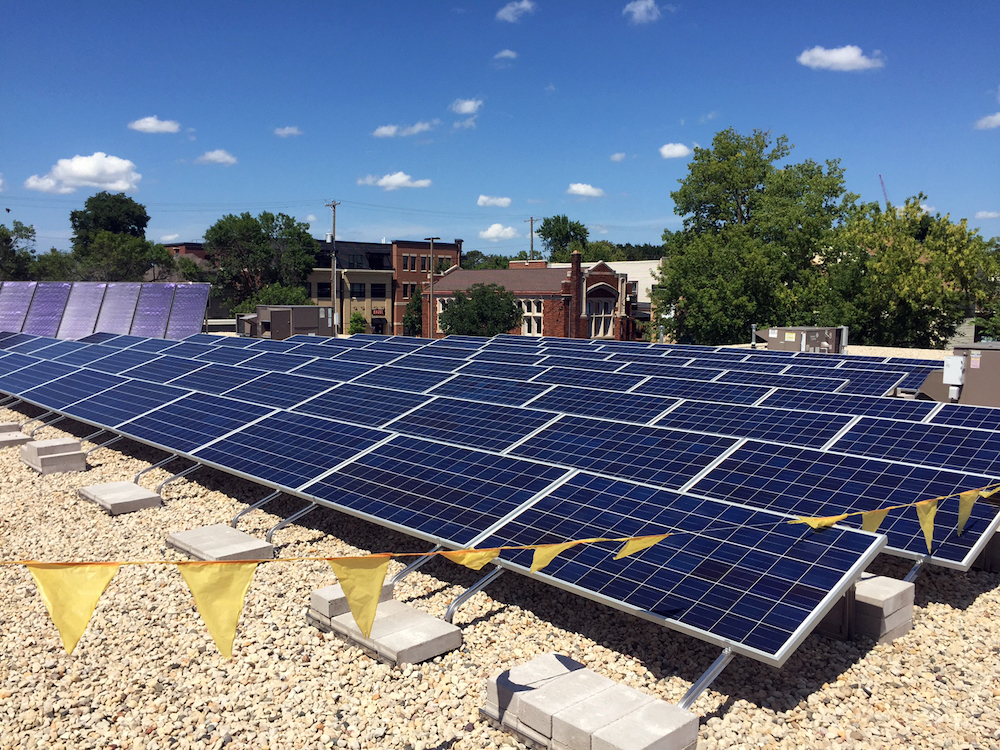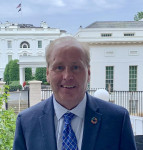New Legislative Proposals Threaten Wisconsin’s Environmental and Economic Progress
Don't eliminate the DNR's Green Tier program argues John Imes.

A solar installation at the Willy Street Co-op grocery store in Madison, Wisconsin. Photo from the Willy Street Co-op.
I just returned from GreenBiz 24, the premier sustainable business event with over 2,500 participants, including business leaders representing hundreds of companies and organizations committed to achieving a clean economy through more sustainable development practices.
Little did I know that while I was away, lawmakers in Madison are still playing games when it comes to the state’s environment and economy.
The latest proposal aims to repeal Wisconsin’s Green Tier program and the environmental compliance audit program, both overseen by the Department of Natural Resources. Additionally, it would restrict the involvement of the DNR and local governments in international programs and organizations, including the United Nations Sustainable Development Goals (SDGs).
For over two decades, Wisconsin’s innovative Green Tier law has provided a framework for industry, small businesses, and communities to “do well by doing good,” facilitating environmental improvements while offering incentives such as expedited permitting, streamlined approvals, and reduced fees. Currently, around 50 companies with 166 facilities participate in this nationally recognized program.
Businesses are increasingly embracing the 17 SDGs adopted by the United Nations, addressing issues such as poverty, health, education, inequality, economic growth, climate change, and environmental conservation. Approximately 25% of the Fortune 500 and over 18,000 companies worldwide have committed to helping achieve these goals.
Lawmakers should consider the SDG commitments of companies like Microsoft, which plans to invest $1.4 billion in new data centers and cloud computing infrastructure over the next four years in the Wisconsin Innovation Park near Mount Pleasant. Meanwhile, longstanding Wisconsin companies like Johnson Controls have been actively promoting SDGs while focusing on building efficiency and environmental sustainability.
At GreenBiz, Johnson Controls partnered with Microsoft and other global sustainability leaders to present a half-day tutorial on decarbonizing the built environment, emphasizing strategies for achieving net-zero energy buildings through enhanced energy efficiency and renewable energy technologies.
Wisconsin communities should not be hindered in their pursuit of environmental stewardship and cost savings. Over 30 communities and counties across the state have embraced the Green Tier Legacy Communities Charter, collaborating with nonprofits and state agencies to develop and implement sustainability best practices.
Furthermore, the Inflation Reduction Act offers communities a historic opportunity to accelerate the transition to a clean economy, providing federal “direct pay” credits of up to 30% for renewable energy projects and clean fleet purchases.
In summary, programs like Green Tier have a proven track record of enhancing environmental performance, reducing costs, and fostering competitive advantages. Rather than dismantling successful initiatives, policymakers should strive to expand these programs to encourage greater participation from Wisconsin companies and regional economic development entities, potentially establishing the state as a benchmark for green economic growth and environmental stewardship.
John Imes is Cofounder & Director of Wisconsin Environmental Initiative and serves as Village President of Shorewood Hills.
If you think stories like this are important, become a member of Urban Milwaukee and help support real, independent journalism. Plus you get some cool added benefits.
Op-Ed
-
Wisconsin Candidates Decry Money in Politics, Plan to Raise Tons of It
 Dec 15th, 2025 by Ruth Conniff
Dec 15th, 2025 by Ruth Conniff
-
Trump Left Contraceptives to Rot; Women Pay the Price
 Dec 8th, 2025 by Dr. Shefaali Sharma
Dec 8th, 2025 by Dr. Shefaali Sharma
-
Why the Common Council’s Amended Budget is Good Policy for Milwaukee
 Nov 20th, 2025 by Alds. Marina Dimitrijevic and Russell W. Stamper, II
Nov 20th, 2025 by Alds. Marina Dimitrijevic and Russell W. Stamper, II





















